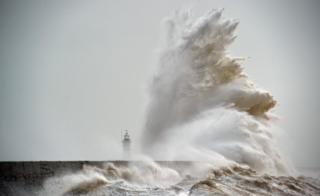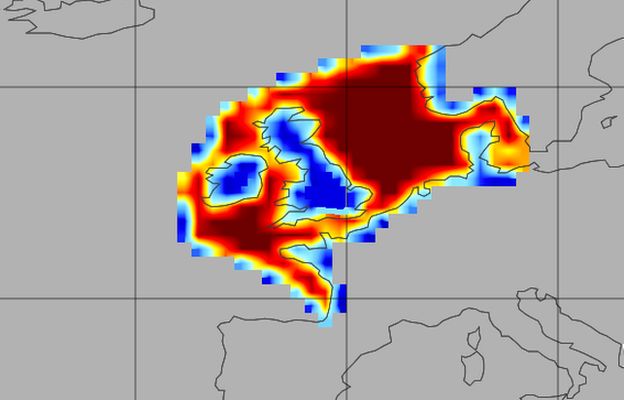The seas around the UK and the rest of northern Europe take up a staggering 24 million tonnes of carbon each year.

Colder, stormy waters at higher latitudes tend to take up most carbon dioxide
It is a mass equivalent to two million double-decker buses or 72,000 747 jets.
The number was produced by scientists studying the movement of carbon dioxide into and out of the oceans.
The team, led by Heriot-Watt University and Exeter University, has produced a software "engine" that will allow other scientists to do the same for different parts of the globe.
"It's a software toolbox essentially, that we've made available," said Exeter's Jamie Shutler.
"We've used it for our own work. We've done extensive checking, and now we're putting it out there for everyone else to use."
The amount of carbon dioxide absorbed by seawater acts as a moderator in the climate system.
It is estimated that a third of all human-produced CO2 emissions, from fossil fuel burning and the like, ends up in the oceans. Another third is taken up by land "sinks", with the rest remaining in the atmosphere.
Researchers are keen to understand how this budget might change over time.

From BBC News
No comments :
Post a Comment